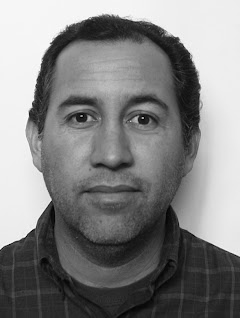Beat
I cover almost everything, from politics, security issues, violence, drug trafficking and migration over the border, to sports and entertainment.
One Shot

“For me, the most important image I’ve taken is one of a policeman carrying a child. He’s next to another policeman, and both men are carrying rifles as they evacuate the kid from a kindergarten, which was right by the spot where a heavy gun battle was taking place. It is important to me because of the comments colleagues, friends and family made about it, and because it was widely published. Hearing the hum of bullets whizzing past me for the first time in my life when I was taking pictures of this event also helped shape my impression of this image.”
Profile
My first memory of photography is of my mother taking pictures during a vacation we took in the peninsular of Baja California when I was six years old. She photographed lots of landscapes and sunsets, including some shots with me in them. Afterwards, looking at the square images in an album back at home transported me back to the place where I travelled as a child.
I basically learnt photography from the manual that came with my first camera - a Nikon N5005, which I got when I was 17 – and from practicing taking pictures of the landscape of Baja California.
My first assignment for Reuters was taking pictures in Mexicali, a city 150km from the place I live. It happened after I answered a phone call from Andrew Winning, a photo editor at the time in Mexico, who asked me if I could shoot some pictures of Arnold Schwarzenegger, the then-governor of California. I immediately said yes, but I found it difficult to concentrate on the conversation because in reality I doubted whether I would be able to do the job since I didn’t have a laptop. In the end though, it worked out and I managed to transmit the images on time.
When I shoot an assignment that’s very important and unlikely to be repeated, I’m always left feeling that I could have taken a few more shots or used a few different angles – I’m always hungry for the opportunity to improve my work. Once I really had that chance, when I photographed the second riot that occurred within three days in the biggest state prison in the city. On my second go shooting the story, I knew very clearly when I had a good picture and when it was the moment to look for the next thing - to go to a new spot, climb a building or run next to some officers transporting a wounded inmate without stopping to look through the viewfinder of my camera.
I want my images to have an impact on people, whether that means the audience likes what they see, or whether it provokes curiosity in them to know more about the story behind the image.
You’re always learning on every assignment and at every event. Don’t let the lesson or the opportunity to improve slip away.
In the photography world, I admire Manuel Alvarez Bravo for the simplicity of his images and for being a pioneer in Mexican photography.
I’d like to thank all the people who took time to comment on my images either on the internet or in person. It helped me understand the impact of my photos on people, and provided me with useful feedback.
